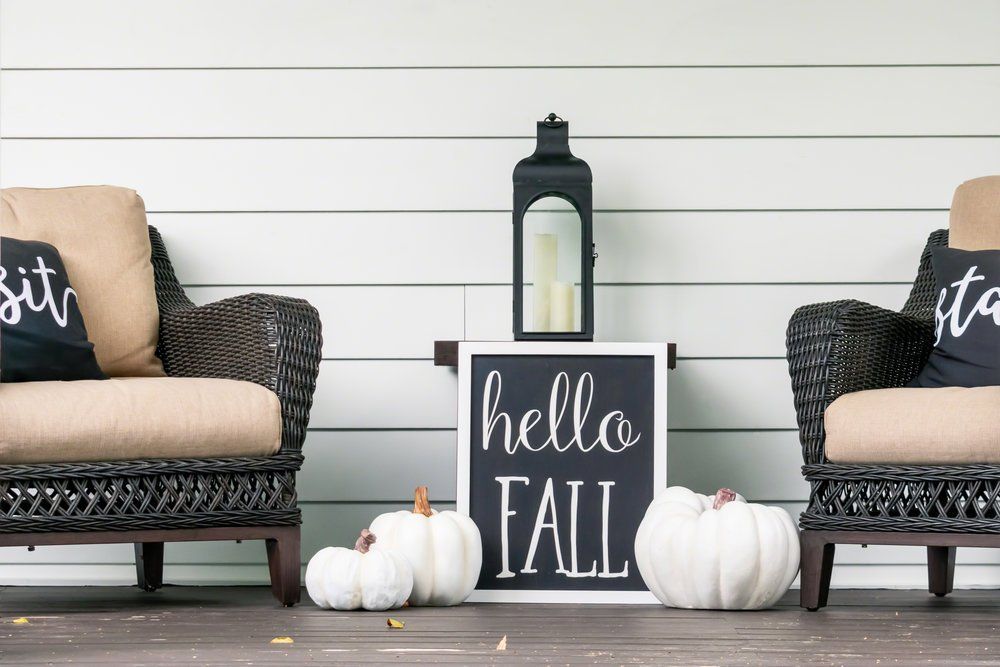NEWS
The Best Luxury Real Estate in Southern California
MY BLOG

In countless homes across the country and the world, there has been a major shift to working from home - even for students. If you are working from home and trying to manage your children being home and doing school work, you may be at a loss when it comes to ensuring productivity. With a television across the room and no boss or teacher hovering, distraction comes easily. Here are some tips to create a space that enables productivity! 1. Light up your space! Letting in as much natural light as possible to your at-home work space is the first step to making a better place to get things done. Your body works best with natural light because of circadian rhythms, which tell your brain to be awake and productive when natural light is around you. Natural light will help you feel alert and the vitamin D you will get from opening those windows will help boost your immune system. 2. Add minimalist decor! You don’t want to crowd your work space, but it is important to decorate your space in a way that you will enjoy. Having a clean, organized space with a few quirks that will make you smile - like a favorite photo. Make sure any items you will need, like pens and highlighters, are within reach, so you are more motivated to stay put! 3. Make your work space only a work space. It is important to train your brain to differentiate when it is time to work and when it is not. When we drive to work or school, it is natural for us to switch into ‘working’ mode, but when we work from home, it is hard to get into that mode. By only sitting in your work space when it is time to get things done, you will train your brain to be more productive when you are in that space. 4. Manage your cell phone use. While you may need your phone to make work calls or check in with your teacher, it is important to set boundaries and stick to them. If you find yourself constantly wanting to scroll through social media instead of getting work done, try download an app that will limit your social media access each hour. If you don’t need your phone for work or school, try keeping it in a box across the room

Dossier Capital and I have been closely monitoring the ongoing circumstances regarding COVID-19 and are taking active steps in order to ensure our communities, Agents & Buyers are protected during these times. I am available for video-chat tours and I have included links under my listings if you prefer to do a 3D tour of a property. Please view " Agent Remarks-Safe Showing Update " at the bottom of this email to see the steps Dossier Capital and myself are taking to provide a safe environment in our homes.

While it may only be temporary, the COVID-19 pandemic is touching everyone’s life in one way or another. If you are in the market to buy or sell your home, this can be a frightening time. With calls for social distancing and many businesses temporarily closing their doors, there is a great deal of uncertainty when it comes to real estate. If you are trying to buy or sell right now, here are some tips to help you make it through! GO DIGITAL Instead of opting for an open house, see if you can do a guided tour via Facetime or video marketing. SANITIZE If you are still allowing tours of your home or attempting to tour homes, make sure you are taking all sanitary precautions. Offer hand soap for your home tour and ensure you are sanitizing all surfaces a potential buyer may come into contact with, such as door knobs and counter tops. If you are touring a home, make sure you maintain social distancing practices with the agent and avoid touching anything you do not need to. DOWNSIZE Instead of having an open house, consider having only scheduled showings for your home or only participating in scheduled viewings if you are looking to buy. STAY CALM, STAY SAFE While there are still many options to buy and sell right now, stay calm and trust your agent. This is their specialty and they know the best course of action during this time. If they can offer digital options, they will let you know.

While you may enjoy stepping out into a cold bathroom in the middle of summer, that usually isn’t as enjoyable when winter strikes. Even with your heat running, sometimes bathrooms can get a little frosty - especially after a hot shower. All of the surfaces in your bathroom, like the tile floors and porcelain toilet, are not ideal for holding in heat. Here are 3 ways you can bring the heat to your bathroom this winter so you won’t have to dread shower time anymore. Invest In A Towel Warmer What better way to beat the chill than a warm towel to wrap up in when you are ready to get out of the shower? Heated towel racks can be installed right outside of your shower door. The rungs of the rack typically act as warming rods and can hold several towels at once, so everyone can enjoy a warm towel this winter! Heated Toilets Seats Are In While America is a little behind on technologically advanced toilet systems in comparison to other countries, heated toilet seats have started to make their way into the mainstream bathroom decor here in the US. These toilets usually come with bidet-like system, so toilet paper is no longer needed. With a quick wash and a gentle dry with warm air - all while you are on a heated seat - going to the bathroom in winter doesn’t have to be dreadfully cold! Never Get Cold Feet With Heated Floors Most people would agree that stepping out of the shower onto an ice-cold tile floor can send a chill up your body no matter how warm you are. Instead of hopping across the bathroom as quickly as possible to find slippers, consider investing in radiant floor heating if your bathroom is due for an upgrade. While it is definitely not an easy project, it will add value to your home and be priceless on those days where you don’t want to freeze your toes on cold tile.

The holidays can be a time of stress, but your houseplants shouldn’t contribute to that. For the holiday season, your poinsettia, holiday cacti, and amaryllis only need sunlight, moisture, and proper drainage. Here is a quick guide about what your houseplants want this holiday season! Your Plant’s Holiday Wishlist Sunlight Light alone isn’t enough - your plants want and need natural light so it is key to make sure they get bright, indirect sunlight. If you’re wondering what indirect sunlight will look like, it will be bright enough to be able to read indoors without needing to squint from the brightness. Your plant should have a blurry shadow - this is a great indicator that it is getting enough indirect sunlight. Water The top plant killer is overwatering. Considering their vulnerability because of the cold, it is very important to water your plant based on their needs. To keep from overwatering, wait for the top inch of the potting mix to be dry. When you water the plant, be sure to water the potting mix until it is moist from top to bottom and avoid watering the leaves themselves. Drainage The first step to proper drainage is transferring your plant into a real flowerpot from the cellophane wrapped plastic pot it is usually purchased in. Make sure you have a saucer to place under your flowerpot’s drainage hole to prevent any furniture stains.

1. Cut down on monthly subscriptions. With each month, there is a new subscription service out there. What starts as convenience turns into an endless list of subscriptions that we often don’t use enough to justify the costs. Sit down and go through your monthly/yearly subscriptions and cancel whatever you don’t use. Set aside that extra money with the rest of your savings so your down payment can continue to grow. 2. Build a better credit history. Paying bills on time and paying off debts will help create a solid credit history. Make sure you have some utilities or rent in your name so that you can pay them on time and continue to build a solid credit history. 3. Avoid changing careers. Alongside income, your employment history will be a major factor during your mortgage application evaluation. While a new job could be a good career move, most evaluators are looking for a steady job history with little to no gaps in your employment over the last few years. 4. Check your credit. If you don’t know where your credit is at currently, now is the best time to check. Most credit sites will tell you what is impacting your credit, and you can use those tips to change your choices heading into the new year. If large debts are negatively impacting your credit, get started on a pay off plan so your score can improve in the new year. 5. Avoid large purchases. Your debt-to-credit ratio makes a major impact on your mortgage approval. If you buy a brand new car or fund a large vacation, that ratio could sway in the wrong direction. If you want your lender to be willing to give you the maximum amount possible, make sure you aren’t making any large purchases heading into the new year.

Fall Maintenance Check List Halloween has come and gone and the cool weather is in full swing. By preparing for fall weather, you can address any issues that may get worse with colder temperatures or just keep your home in the best condition to make sure your property is in top shape no matter the season. Here is a great reference checklist to make sure you’re doing the basics to get your home ready for fall! 1. Rake it up. Everyone loves the changing leaves, except your grass. Leaving fallen leaves in your yard can kill you grass and prevent growth in the spring. Make sure you keep those leaves raked up! 2. Check your gutters. Those same leaves that can kill your grass can also clog your gutters. Clogged gutters can lead to plenty of other issues, so be sure to periodically check your gutters to prevent buildup. 3. Don’t forget your roof. You don’t want fall to pass and winter to arrive only to find out you’re missing a few shingles. While you’re checking your gutters, make sure to check on your roof too. 4. Store summer decor. If you are set to get cold temperatures this fall, take the time to pack away your summer items. If your patio furniture isn’t equipped for a surprise snow storm, you’ll be glad you took the time to store it away now. 5. Prevent frozen pipes. No one wants frozen, bursting pipes. Remember to shut off water to your exterior faucets before the weather hits freezing temperatures. 6. Venting is healthy. As the temperatures drop, static electricity increases. If you have lint build up in your dryer, this static electricity makes it easier to ignite. 7. Do your own inspection. Take a walk around the interior and exterior of your home and try to look at it with fresh eyes. Keep an eye out for any damage to walls, floors, or cement outdoors. Be sure to fill any cracks or fix loose gravel that could cause a fall when colder weather is added to the mix. 8. Check your insurance. Is your home insurance up to date? Make sure your insurance will stand up in a storm and that you will be covered no matter what fall will bring.

If you’re a first-time buyer new to real estate, you’ve probably come across the term TIC. In real estate terms, TIC stands for tenants in common , or tenancy in common. A TIC is a way for two or more people to jointly purchase real estate and take title to that property, without having right of survivorship. TIC, or “Tenants in Common.” It refers to an arrangement where two or more people co- own real estate without the right of survivorship. For example, two friends, Fred and Alice, who pool their money and buy a house together— they each own an agreed-upon percentage of the property. TIC ownership in Southern California, is most often used to refer to a special arrangement that allows individuals to own a unit in a building before that building converts to a condo and it’s often the easiest way for first-time buyers to own a home. How co-owners live in a TIC building—including who owns each portion of the building—is governed by a contract: the TIC agreement. This agreement substitutes for an individual properly deed and condominium by-laws and its importance is critical. TIC is often the easiest way for renters, or first-time buyers, to purchase property. It’s been popular in San Francisco since the 1970’s and we are proud to bring TIC ownership to the Los Angeles market. Details from Sterling Bank & Trust.

Spring is the busiest season for home sales. If you’re interested in selling, the best time to list your home is probably in early April. According to a new report from Realtor.com on property sales in the 50 largest American metropolitan areas, homes listed across the country during the first week of April received 14 percent more views online than homes listed during any other week of the year. Compared with the weekly average across the year, they also had 5 percent fewer total listings to compete with and sold at an average of six days sooner, for almost 6 percent (or $17,000) more. To determine this, the company weighed several factors for listings on its site between January 2016 and December 2018: the number of days each property spent on the market; the rate at which properties listed at various times of year sold above or below asking price; the number of online views listings received; the total number of listings at any given time; and the average listing price in each area at various times of year. On a local level, of course, the results varied. But while there were a number of exceptions, the best time to list a home in most of the cities the study examined was in April. NyTimes.com

If you’re young and you’re looking to purchase a new home to live in, maybe you should consider turning your first home into an investment property. While most people wait until after they’ve bought their first or second home to begin investing in real estate, you could start much sooner than you think. We’ll explain why jumping into the real estate investing game might be a good idea. Many people, especially in the wake of the mortgage crisis, have found themselves wondering: “Is buying a house a good investment?” One way to ease your worries about whether buying a house will pay off is by renting out the first home you buy. By turning your home into an investment property, you can leverage your less-than-perfect credit, less-than-perfect lifestyle and limited responsibilities into an investment. All it takes is a little bit of smarts and real estate shrewdness. The idea of making your first home an investment goes against the general notions of personal finance. In fact it goes against how most people approach post-college life. The typical financial timeline for your average American adult might look like this: College First Job First rental Second/third rental Marriage Starter Home Children Second Home Education Investments There’s nothing wrong with following that timeline, since it can give you plenty of time to build credit, save money and enjoy being young. But if you’re a 22-year-old college graduate with a solid job (good for you), waiting until you’re well into your 30s or 40s to start investing might not be wise. Here are five reasons why you should entertain the idea of investing in real estate while you’re still young. 1. You’re Young Being young and independent can be pretty amazing. You can make your own rules, live where you want, buy what you want and travel whenever you want. But that can get old pretty quickly, especially if you have other goals in mind. All the money you’re currently spending “living the life” while living in a crappy apartment could be spent on something else. Saving money and building credit aren’t impossible and they’re part of what you’ll need to qualify for a mortgage loan (more on that below). Your current lifestyle might actually allow you to cut costs in a way that might not be possible later in life when you have larger obligations. If you can learn how to effectively manage your money, you can come up with enough cash for a down payment. 2. Real Estate Is Cheap According to recent reports from National Association of Realtors home prices are on the rise. However, most real estate markets present many bargains to potential buyers in the form of distressed sales. Distressed sales are homes or properties that have usually been foreclosed on that the bank is willing to sell at a loss in order to clear its books. These distressed sales also help drive down the cost of all properties in the area. There are plenty of distressed homes for sale. Buying one would allow you to own an investment for significantly less than market value, especially as prices begin to rise. Before buying any property , however, it’s important to make sure you purchase a house that you can afford . 3. You’ll Have Another Source of Income If you are purchasing a property that you plan to rent out, you’ll be able to profit off your investment as soon as you find tenants. Then you can take the money you earn and reinvest it in your property or use it to pay off other bills and debts. 4. FHA Loans Industry standards say that you’re required to put at least 20% down when buying a house. But if you can’t afford to pay that much, you might be able to purchase an investment property with much less than that by getting an FHA loan. FHA loans give people who don’t have the greatest credit the chance to become homeowners. If you decide that investing is for you, an FHA loan could be the perfect way to finance the purchase. There is one catch, however, FHA loans require that you live in the property you seek to purchase. To get around that rule, you can purchase a property with up to four rental units and make one unit your primary residence. 5. Changing Demographics According to a report produced by the Research Institute for Housing America, homeownership among immigrants nationwide is expected to account for 36% of housing growth over the next decade. This is due in large part, according to the report, to the strong desires among immigrants to become homeowners. Source: https://smartasset.com

In countless homes across the country and the world, there has been a major shift to working from home - even for students. If you are working from home and trying to manage your children being home and doing school work, you may be at a loss when it comes to ensuring productivity. With a television across the room and no boss or teacher hovering, distraction comes easily. Here are some tips to create a space that enables productivity! 1. Light up your space! Letting in as much natural light as possible to your at-home work space is the first step to making a better place to get things done. Your body works best with natural light because of circadian rhythms, which tell your brain to be awake and productive when natural light is around you. Natural light will help you feel alert and the vitamin D you will get from opening those windows will help boost your immune system. 2. Add minimalist decor! You don’t want to crowd your work space, but it is important to decorate your space in a way that you will enjoy. Having a clean, organized space with a few quirks that will make you smile - like a favorite photo. Make sure any items you will need, like pens and highlighters, are within reach, so you are more motivated to stay put! 3. Make your work space only a work space. It is important to train your brain to differentiate when it is time to work and when it is not. When we drive to work or school, it is natural for us to switch into ‘working’ mode, but when we work from home, it is hard to get into that mode. By only sitting in your work space when it is time to get things done, you will train your brain to be more productive when you are in that space. 4. Manage your cell phone use. While you may need your phone to make work calls or check in with your teacher, it is important to set boundaries and stick to them. If you find yourself constantly wanting to scroll through social media instead of getting work done, try download an app that will limit your social media access each hour. If you don’t need your phone for work or school, try keeping it in a box across the room

Dossier Capital and I have been closely monitoring the ongoing circumstances regarding COVID-19 and are taking active steps in order to ensure our communities, Agents & Buyers are protected during these times. I am available for video-chat tours and I have included links under my listings if you prefer to do a 3D tour of a property. Please view " Agent Remarks-Safe Showing Update " at the bottom of this email to see the steps Dossier Capital and myself are taking to provide a safe environment in our homes.



